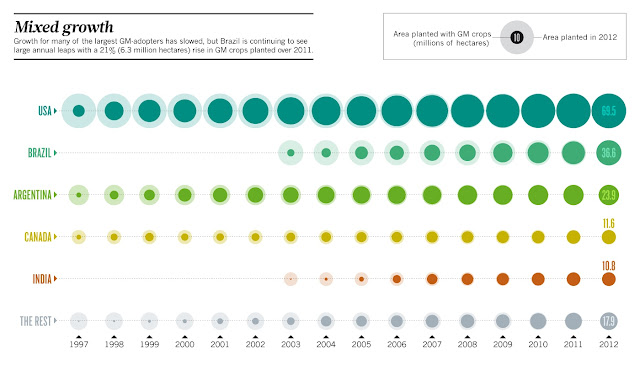Yes, I understand the partnership from a purely business perspective, since McKee Foods, the parent company of Little Debbie, is headquartered in Tennessee. My issues relate to public health, and what this partnership says about where health falls on the spectrum of priorities.
The biggest disappointment, in my opinion, is that race weekend festivities include a IRONKIDS Fun Run. As described on the IRONMAN website, the race "offers young athletes the unique opportunity to feel the excitement of competition while enjoying the outdoors and promoting healthy living."
Here's my big question. How does a race promote healthy living when its title sponsor is a company that manufactures products that contain substances known to HARM health, such a partially hydrogenated vegetable oil (i.e. trans fat) and artificial flavors. Here are the nutrition facts and ingredients from the Little Debbies Fudge Brownies:
What's more, a number of major food and beverage companies have voluntarily committed to stop marketing unhealthy food and drinks to kids under the age of 12. And yes, sponsorships are a form of food marketing (just ask big tobacco). Unfortunately, McKee Foods, is not one of the 17 companies to make this marketing pledge. IRONKIDS events are open to kids as young as 3 years old and up to 15.
Regardless, food marketing to children is deceptive and, unfortunately, ubiquitous. It's well-known how this type of marketing influences children's behavior and preferences. My biggest issue is for the World Triathlon Corporation, which owns the IRONMAN brand, to say it's trying to promote healthy living while at the same time partnering with companies whose products clearly don't align with that goal.
The other ironic twist to this partnership is that IRONMAN Chattanooga is also "benefiting the Crohn's & Colitis Foundation of America." This certainly sounds admirable, but let's dig a bit into the science. Crohn's disease and ulcerative colitis are inflammatory bowel diseases. According to the Mayo Clinic, Crohn's disease "causes inflammation of the lining of your digestive tract, which can lead to abdominal pain, severe diarrhea and even malnutrition." One of the most pro-inflammatory foods overly consumed in the average American diet today are vegetable oils (partly because of their extremely high omega-6 fatty acid content). However, the biggest problem comes when vegetable oils are hydrogenated. Enter, trans fats, which research has shown to be associated with the development of ulcerative colitis.
One study, in particular, published in 2013 in the journal Gut, tracked more 170,805 women enrolled in the Nurses' Health Study over 26 years and found that "long-term intake of total fat, saturated fats, unsaturated fats (mono or polyunsaturated) were not associated with risk of CD (Crohn's disease) or UC (ulcerative colitis)." Now, before we exonerate all fat, there was one important exception to this conclusion. They found a "trend towards increased risk of UC (ulcerative colitis) associated with high intake of trans-unsaturated fatty acids."
The takeaway from this: long-term intake of trans fat is associated with the development of inflammatory bowel diseases such as ulcerative colitis. So, doesn't it seem ironic that the race is promoting a product that contributes to the same health conditions it's also trying to prevent indirectly through its partnership with the Crohn's and Colitis Foundation of America?
****
IRONMAN has done a lot to grow the sport of triathlon, and I'm thankful for that. In fact, I'm registered to race in IRONMAN events this year. Triathlon is a sport I love and will continue to compete in. Just don't expect to see me at the start line in Chattanooga in the foreseeable future.


.JPG)








